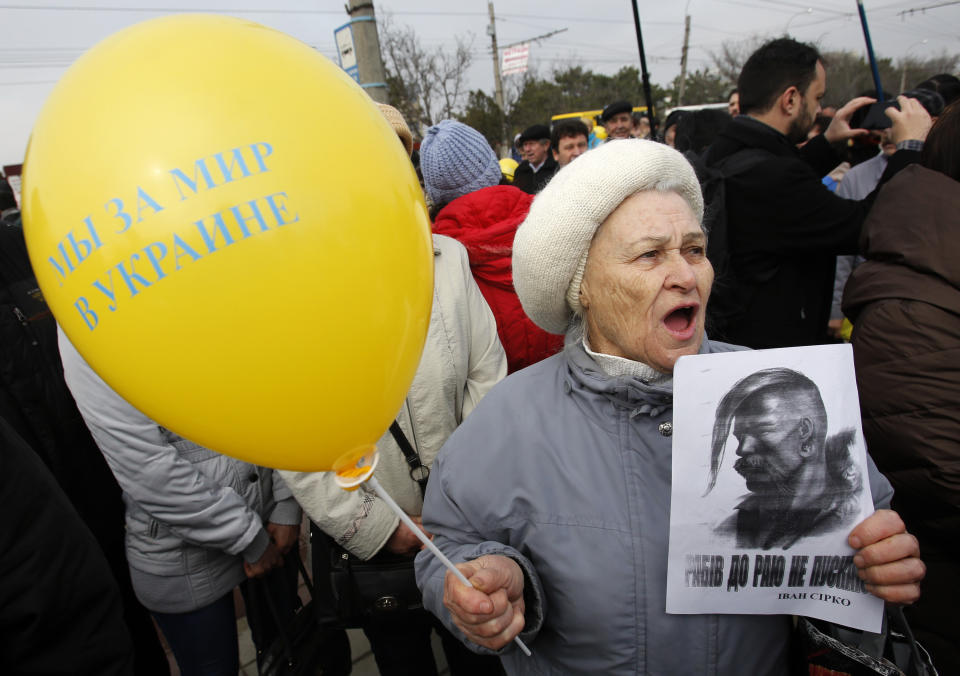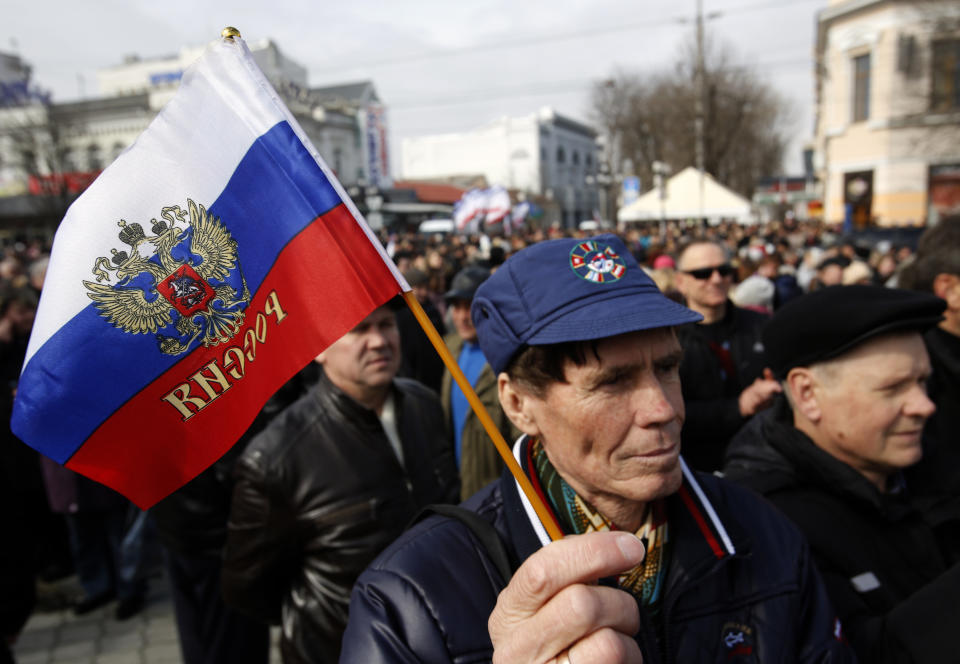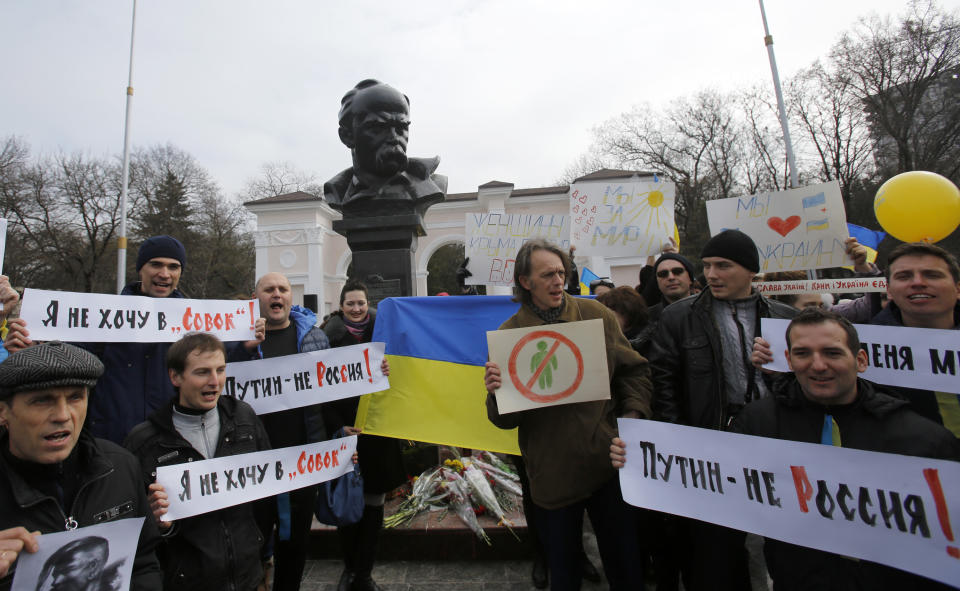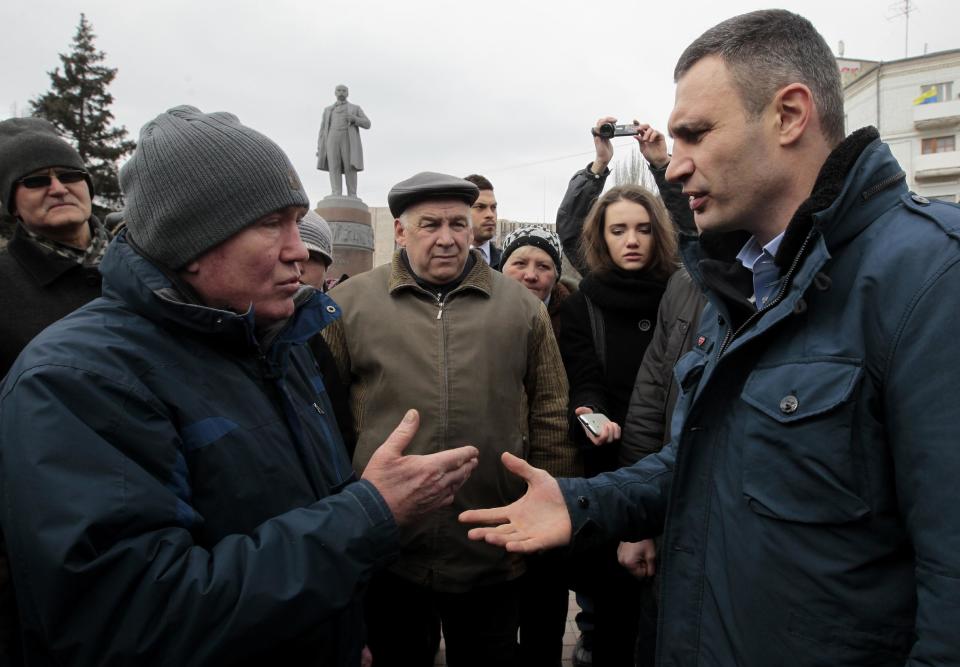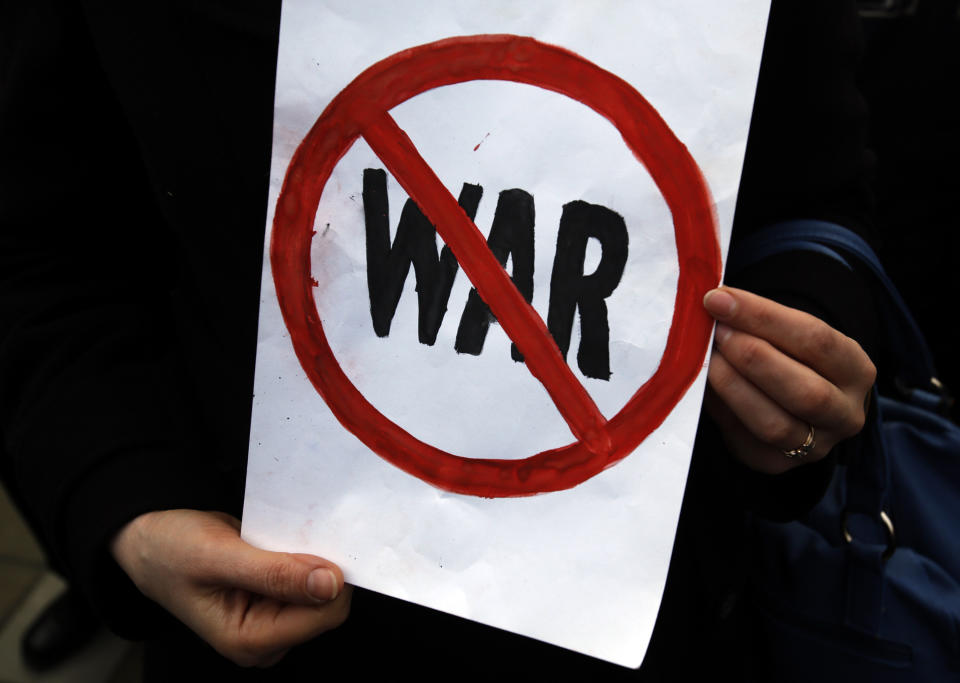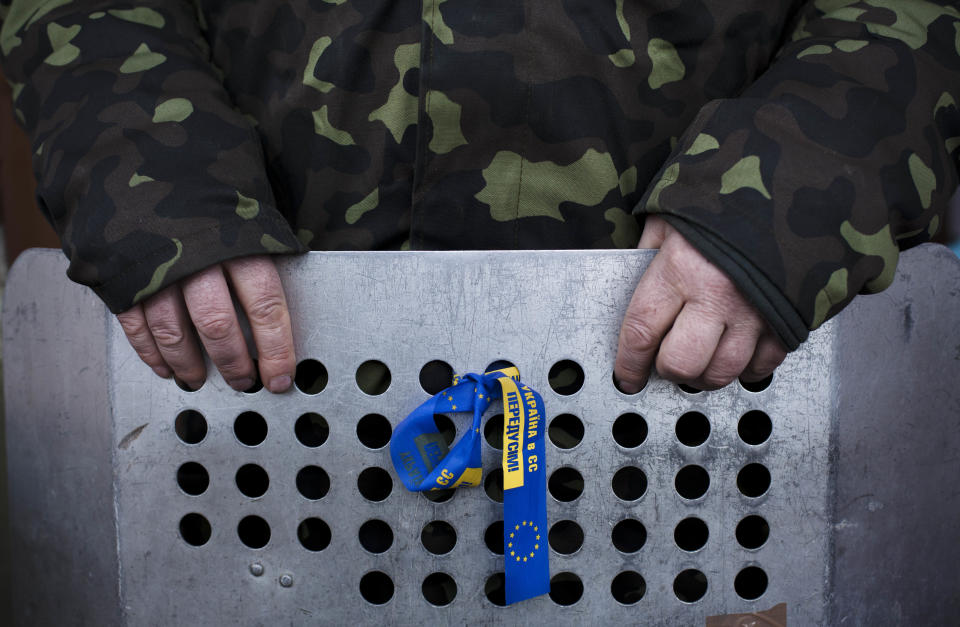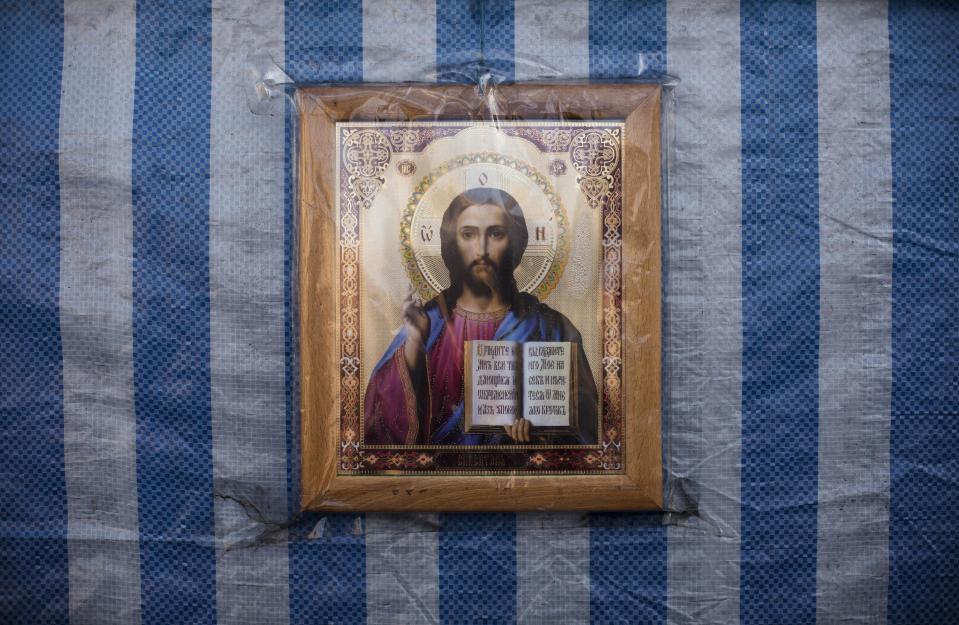PM: Won't budge '1 centimeter' from Ukrainian land
KIEV, Ukraine (AP) — As separatists in Crimea kept up pressure for unification with Moscow, Ukraine on Sunday solemnly commemorated the 200th anniversary of the birth of its greatest poet, with the prime minister vowing not to give up "a single centimeter" of Ukrainian territory.
"This is our land," Arseniy Yatsenyuk told a crowd gathered at the Kiev statue to writer and nationalist Taras Shevchenko. "Our fathers and grandfathers have spilled their blood for this land. And we won't budge a single centimeter from Ukrainian land. Let Russia and its president know this."
"We're one country, one family and we're here together with our kobzar (bard) Taras," said acting President Oleksandr Turchynov.
In the afternoon, Ukrainians in the tens of thousands massed in their capital city's downtown for a multi-faith prayer meeting to show their unity and honor Shevchenko, a son of peasant serfs who is considered the father of modern Ukrainian literature and is a national hero.
One of the speakers, former imprisoned Russian tycoon Mikhail Khodorkovsky, almost burst into tears as he implored the crowd to believe that not all Russians support their country's recent actions in Ukraine.
"I want you to know there is a completely different Russia," Khodorkovsky said.
But in Moscow, Russian President Vladimir Putin made it clear that he supports the March 16 referendum the regional parliament in Crimea plans to hold on leaving Ukraine to join Russia.
In phone calls with German Chancellor Angela Merkel and British Minister David Cameron on Sunday, Putin defended the situation in Crimea, where Russia reinforced its armed presence this weekend, the Kremlin said.
"The steps taken by the legitimate leadership of Crimea are based on the norms of international law and aim to ensure the legal interests of the population of the peninsula," said Putin, according to the Kremlin.
Following an extraordinary meeting of the Ukrainian government in Kiev on Sunday, Yatsenyuk announced that he will fly to the United States this week for high-level talks on "resolution of the situation in Ukraine," the Interfax news agency reported.
"Our country and our people are facing the biggest challenges in the history of modern independent Ukraine," the prime minister said earlier in the day. "Will we be able to deal with these challenges? There should only be one answer to this question and that is: yes."
Crimea, a strategic peninsula in southern Ukraine, has become the flashpoint in the battle for Ukraine, where three months of protests sparked by President Victor Yanukovych's decision to ditch a significant treaty with the 28-nation European Union after strong pressure from Russia led to his downfall. A majority of people in Crimea identify with Russia, and Moscow's Black Sea Fleet is based in Sevastopol, as is Ukraine's.
This weekend, Russian Foreign Minister Sergey Lavrov ruled out any dialogue with Ukraine's new authorities, whom he dismissed as the puppets of extremists.
Senior lawmakers in Moscow have said they will support Ukraine's March 16 referendum, ignoring sanctions threats and warnings from President Barack Obama that the vote would violate international law.
In Simferopol, the Crimean capital, a crowd of more than 4,000 people turned out Sunday to endorse unification with Russia. On Lenin Square, a naval band played World War II songs as old women sang along, and dozens of tricolor Russian flags fluttered in the cold wind.
"Russians are our brothers," Crimean Parliament speaker Vladimir Konstantinov said. He asked the crowd how it would vote in the referendum a week hence.
"Russia! Russia!" came the loud answer.
"We are going back home to the Motherland," said Konstantinov.
Across town, at a park where a large bust of Shevchenko stands, around 500 people, some wearing yellow-and-blue Ukrainian flags on their shoulders like capes, came out to oppose unification with Russia. They chanted "No to the referendum!" and "Ukraine!" People handed out fliers, one of which laid out the economic troubles that joining Russia would supposedly cause.
"We will not allow a foreign boot that wants to stand on the heads of our children," one of the speakers, Alla Petrova, said. "The people are not scared. We are not scared to come out here and speak."
Some pro-Russians drove by, shouting "Moscow, Moscow!" from their cars, but there was no trouble.
British Foreign Secretary William Hague, who appeared on the BBC Sunday morning, described Russia's entering Crimea as a "big miscalculation."
He also said the March 16 referendum was happening "ridiculously quickly." Hague added, "The world will not be able to regard that as free or fair."
During his conversations with Cameron and Merkel, Putin criticized the Western leaders for what he said was their failure to press the new government in Kiev to curb ultranationalist and radical forces.
But the Kremlin also said that despite their differences, the three leaders expressed an interest in reducing tensions and normalizing the situation in Ukraine as soon as possible.
---
Danica Kirka in London, Lynn Berry in Moscow and Tim Sullivan in Simferopol contributed.
